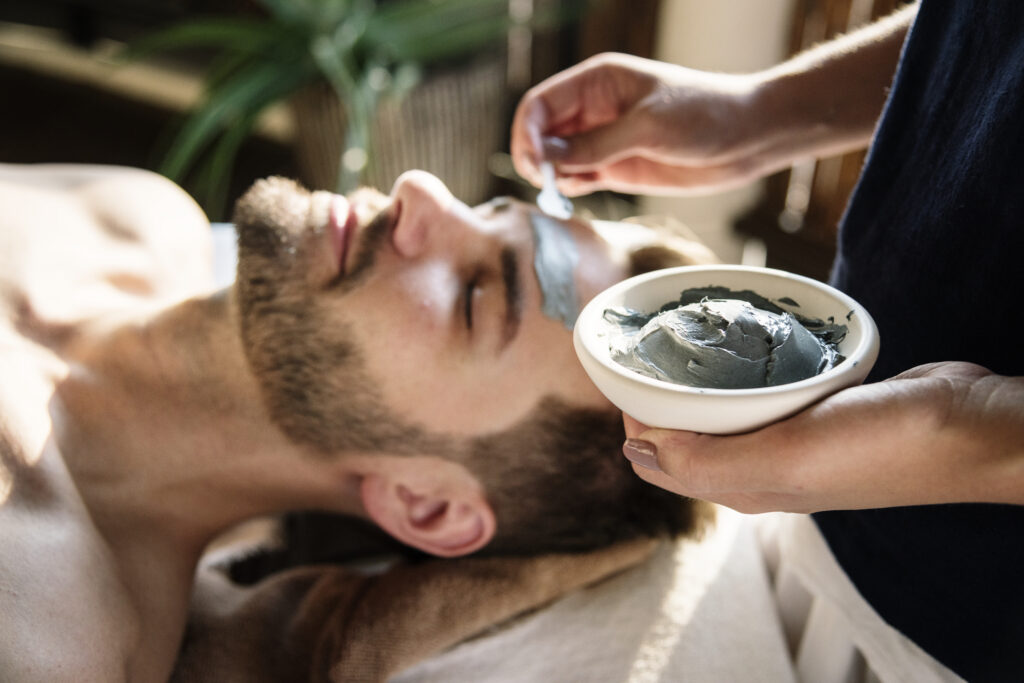The skin is your largest (and arguably most complex) organ. It’s a multilayered organism, designed to protect from invaders, manage nutrient flow, and provide sensation. The skin is your body’s first line of harmonizing the external environment with the internal ecosystem, and is an organ that deserves the deepest respect and care. You may not know that skin has a delicate microbiome that keeps it functioning at its healthiest. However, daily routines full of harsh exfoliation and abrasive products can instantly disrupt and damage the epidermis. First of all, what is the skin’s microbiome and why is it important?
The Skin’s Biome
You’ve likely heard of the gut microbiome, but may not have considered the diverse bacterial colonies present on the surface of the skin. You’re probably familiar with the idea of antibiotic resistance that affects our insides, but have you considered the correlation to the surface of the skin? Microbes are found throughout the human body, living on the skin, gut, sexual organs, and mouth. The skin microbiome, or the collection of microorganisms and bacteria that naturally live on the skin, is an entire ecosystem composed of living biological and physical components. The bacteria on the skin is responsible for maintaining immune functions (one way is through inhibiting pathogen growth), mitigating inflammatory damage, and boosting collagen production. Talk about a natural beauty booster!
Just as within the gut, disruptions in microfloral balance can result in skin disorders and infections. Intricately delicate, the skin’s uppermost surface is extremely vulnerable to damage and can easily be affected. The top surface of the skin is known as the epidermis, and is composed of four distinct layers. It’s connected to the deeper skin layer, the dermis, through cellular junctions. The integrity of this connection is important for maintaining the skin’s health. One of the most harmful things we can do to ruin the skin’s delicate microbiome and lipid barrier? Over-exfoliation.
Avoid
Over-exfoliation weakens the skin’s natural barrier layer and leaves the skin vulnerable to pathogenic assault. When this barrier is in a weakened state, the skin becomes prone to chronic inflammatory conditions such as acne, rosacea, and dermatitis. Similarly to how processed foods disrupt the gut’s microbiome, over exfoliation with synthetics messes with the skin’s delicately-balanced ecosystem. Using harsh exfoliants and surfactants on the skin’s surface wreaks havoc on the skin’s healthy bacteria, leading to a weakened epidermis, as well as its connection to the lower dermis. Your skin is constantly regenerating itself. Over exfoliation hinders this regenerative process by asking the skin to make more skin cells too quickly. The top layer of the skin serve as a tried and true protector, and when it’s thrown out of whack by harsh exfoliants, it’s unable to effectively do its job. A particularly appropriate metaphor for over exfoliation is, as Nadeau puts it, leaving your front door open when you leave for vacation. Not a good idea!
Embrace
Instead of leaving that front door open, nourish the skin’s many layers by using clean, organic, lipid filled skincare products. Honoring the bacterial colonies present throughout the skin will energetically strengthen their effectiveness, allowing them to work even more symbiotically with your skin cells.
Internally, prebiotics from organic or wildcrafted fruits, vegetables, and herbs help to strengthen and fortify the skin. In somewhat miraculous ways, the skin is a reflection of what’s happening internally. The innermost layers of the skin are rich in blood supply, connecting the skin to the rest of the body’s systems. The digestive system, cardiovascular system, and endocrine (aka hormone) systems are in contact with the skin. How cool! Taking good care of your insides nourishes the internal organs, ultimately making the skin’s multiple layers of cells happy and healthy, too.
xo
Nadia

